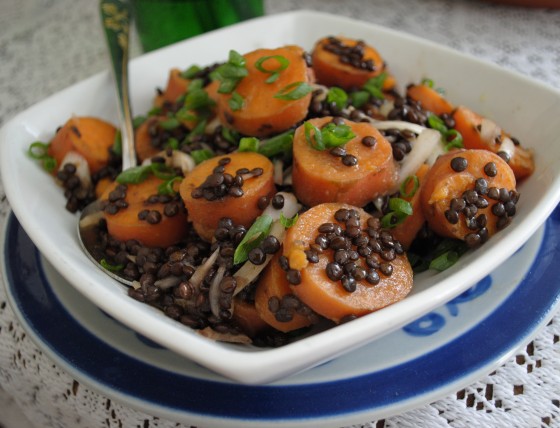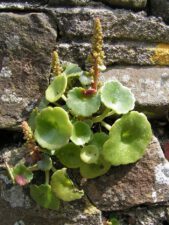Going vegan can be a beneficial choice, for both your own body and for the environment. However, many questions have been raised about the sustainability and balanced nutrition of a vegan diet time and time again. After all, can plants truly fill up the percentage of protein, minerals such as iron, zinc, and – most importantly – the several types and subgroups of vitamins?
Getting your required dosage of vitamins such as Vitamin B12, Vitamin D3, and more when you’re strictly vegan can be hard. Even the Academy of Nutrition and Dietetics has warned about the major Vitamin B12 deficiencies that veganism and vegetarianism may lead to. Now’s a great time to check your current diet and add some necessary nutrients that it may be lacking. Here are some vegan-friendly and vitamin-rich food suggestions.
Fortified Nutritional Yeast (The Ultimate Source for Riboflavin)
Fortification is the process of adding more micronutrients to foods to increase their nutritional value, and these fortified foods are probably the most abundant source of Vitamin B12 and D. Whether you’re all for or against them, we can all agree that consuming them in the right amounts can really help your vegan diet come full circle.
What makes nutritional yeast perfect for vegans, though, is not just how rich in vitamin B12 it is. Nutritional yeast is specifically cultivated as a food product and not a leavening or brewing agent for bread and alcohol. The yeast is cooked before being converted into edible flakes, giving it a completely different composition and flavor profile from regular yeast.
Fortified nutritional yeast is also an excellent source of all nine essential amino acids, as well as a hearty dose of iron and protein, too. It strengthens your blood cells, facilitates the repairing function of your tissues, and helps to prevent anemia. It’s commonly used as a vegan cheese substitute for vegan foods, so feel free to add a healthy sprinkle of it over your meals for an awesome cheesy bite.
Alfalfa (Rich in Vitamins, Minerals, and Protein)
Alfalfa is a legume mostly known as a top-notch animal feed rich in vitamins, minerals, and protein, but you would be pleasantly surprised to know that this superfood can also be eaten by humans. Alfalfa has quite a history as a medicinal herb, but as of late, it has become the vegan’s ultimate source for some rare and essential nutrients, such as iron, magnesium, copper, and Vitamins B12, C, and K.
Sweet Potatoes (Packed With Protein and Vitamins A, C, and B6)

Sweet potatoes have the starchy richness of normal potatoes and some fresh health benefits of their own. They’re surprisingly very nutritious, containing Vitamins A, C, and B6. They also contain copper, manganese, fiber, and protein, making them the ultimate addition to any healthy vegan diet. As an added bonus, they’re also known to improve your vision and brain function.
Brussels Sprouts (Low in Calories, High in Vitamins K, C, and A)
If you love Brussels sprouts, you’ll be glad to know that these greens are amazing for your body and are filled to the brim with nutrients. They’re also quite filling, too, despite being very low on calories. That means that if you want to lose weight, you definitely need to include brussels sprouts in your diet.
In terms of their nutritional values, Brussels sprouts are known for being a good source of vitamins A, C, and K. They also contain manganese, a mineral that strengthens your bones and connective tissues and improves blood clotting, which is ideal for diabetics.
Mushrooms (Delicious pockets of Vitamin D)
Vitamin D is hard to find in nature, and this is why mushrooms are all the more fascinating. Mushrooms grown in nature are soaked up in vitamin D since their tissues absorb sunlight as our bodies do. Vegan diets often lack severely in Vitamin D, especially if they don’t include fortified foods since it is usually only found in dairy.
Vitamin D deficiency first shows up in the form of weakened bones that lead to conditions such as osteoporosis in adults and rickets in children. If you’re an adult over the age of 30, it is extremely important that you test your vitamin D to ensure that your bones are in good shape and you’re getting your required dosage of the nutrient.
If you’re wondering where to start, maitake and shiitake mushrooms – especially ones that are sourced from the wild – are great sources of Vitamin D. You can also dry store-bought mushrooms under the sun for a similar effect.
Living Your Healthiest Vegan Life
Figuring out which nutrients your diet is falling short on can help you identify the root cause of many health issues you might be facing, and in turn, correct them efficiently. And if you’re vegan, this step is all the more important. Don’t be afraid to question and check on your diet every now and then, either, and get a dietician’s advice to make sure you’re eating the healthiest meals possible.




